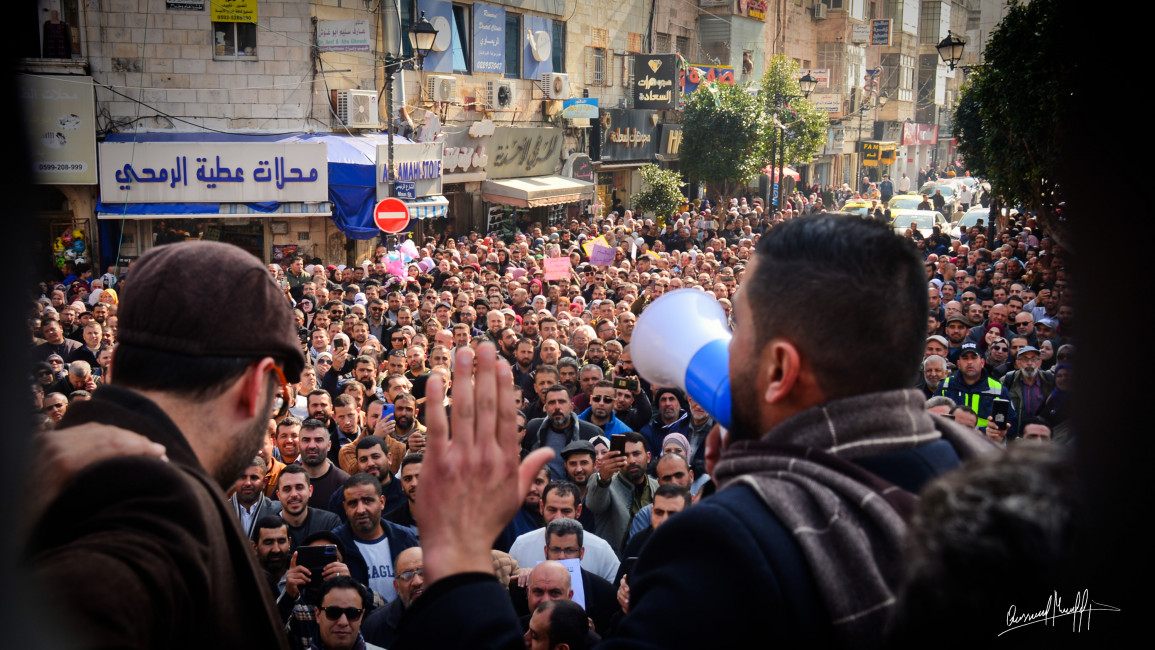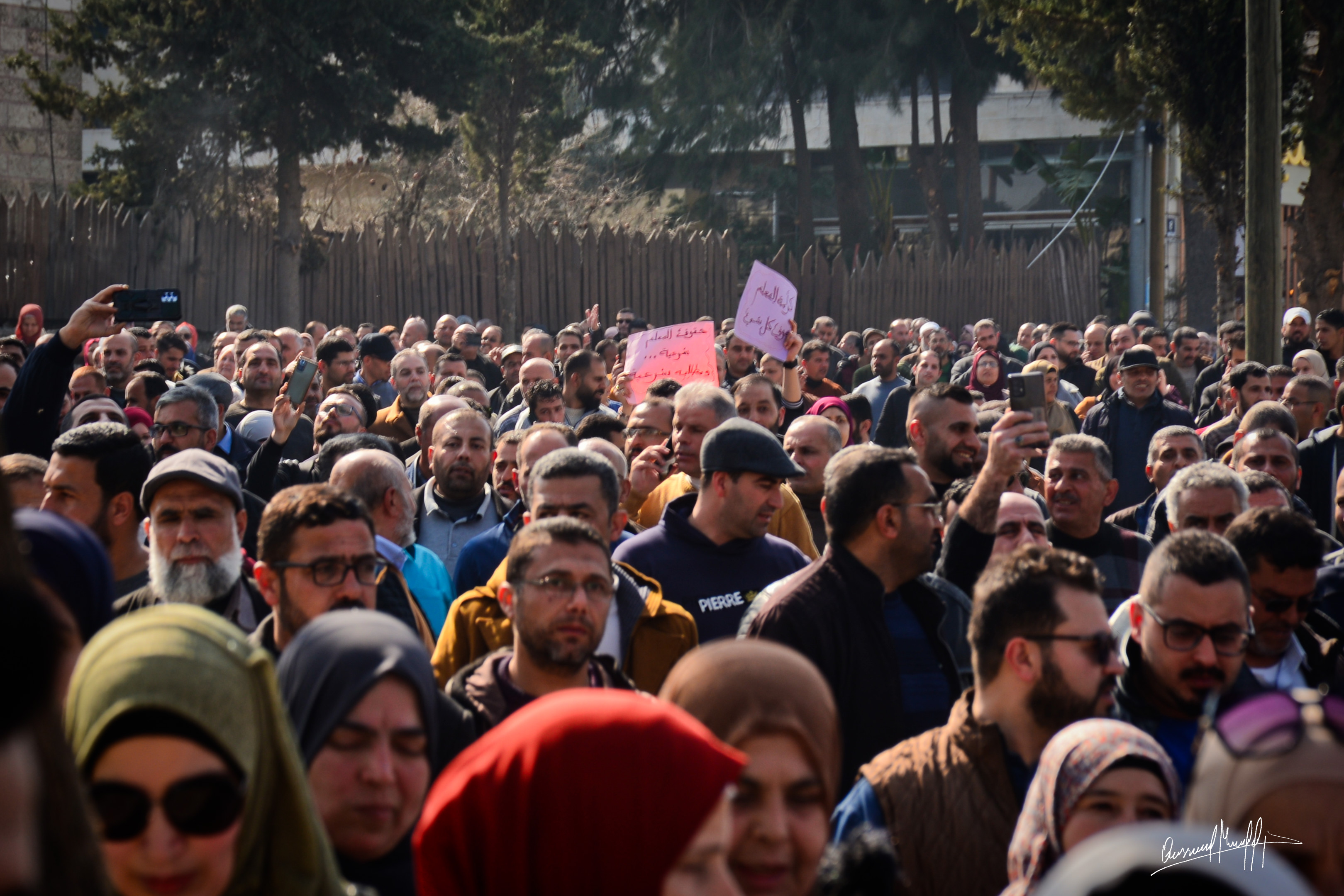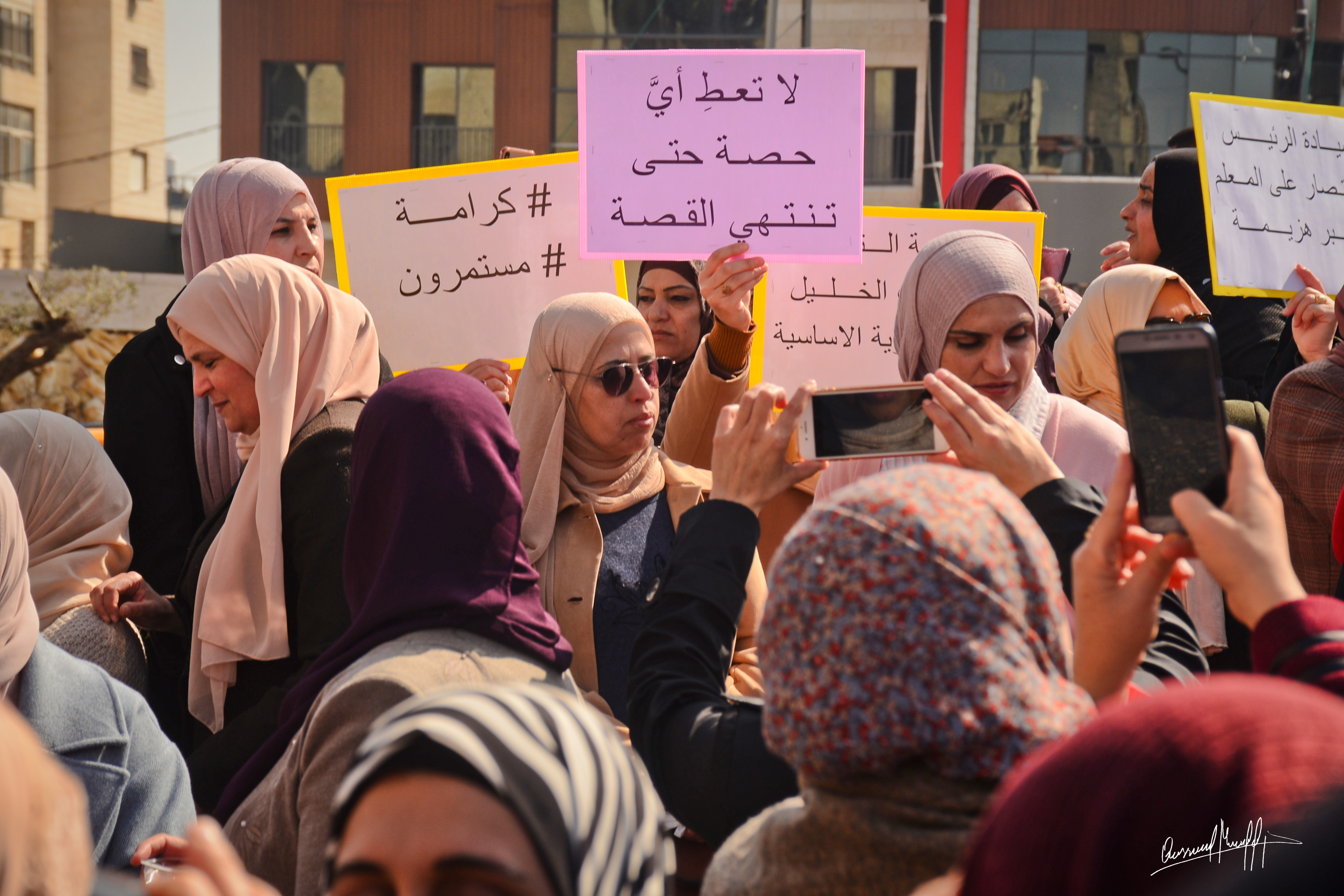Palestinian teachers rally in Ramallah on 3rd week of strike, demanding union and salary increases
Thousands of Palestinian public teachers gathered in Ramallah on Monday to demand independent union representation and an increase in their salaries.
The rally marks three weeks of a general strike launched by public teachers in the occupied West Bank, which was first initiated by an independent, non-official teachers' initiative in protest of the Palestinian government not implementing a previous agreement made following a previous strike by teachers last year.
According to the signed agreement, the Palestinian government committed to a 15% raise to public teachers' salaries to take effect on 1 January 2023 and the authorisation of an independent teachers' union.
"Not only did we not receive the promised raise but it didn't even show up on our salary slip for January," one of the organisers of the strike, who asked not to be named, said to The New Arab.
[Qassam Muaddi /TNA]
"This sends us a message that the entire agreement of last year is nothing but ink on paper," said the organiser.
"Not only are we being denied the right to independent union representation, but we are also threatened with sanctions for taking part in the strike," the organiser added. "School directors are being pressured by the education ministry to open schools and substitute teachers are being called in to break our strike."
In an unusual move, Palestinian security forces were deployed at various exits of West Bank cities since early Monday morning. Protesting teachers interpreted this move as an attempt to restrict access to Ramallah and other sites for the protest movement.
"I came from the village of Jammal, in the Tulkarem district in the north," 50-year-old Islamic education teacher Rasim Mushot told TNA. "We had to make a long detour through many villages to get to Ramallah and be present at the rally."
"I have five children and my salary is about 3,800 shekels (less than US$1,000), which isn't enough to sustain my family and why I have a second job," he said.
"The 15% raise is no longer a demand, but a gained right because the government signed to it," Mushot said. "So is our right to have a union that represents us, democratically elected by us. The fact that we are being denied these rights is a humiliation. How are we supposed to teach the younger generations values like justice and dignity when we are humiliated?" he exclaimed.
"I have four children, my wife also works, but I still have to work as a taxi driver beside my job as a geography teacher in Bethlehem," said another teacher participating in the protest, who asked not to be named.
"I have been teaching geography for 20 years. I never felt represented, because we don't have an independent union to negotiate on our behalf," they added.
Earlier on Monday, Palestinian Prime Minister Mohammad Shtayyeh said in a statement that his government was committed to fulfilling all agreements with social movements, including teachers, as soon as resources will be available.
Shtayyeh referred to the current financial crisis of the PA due to Israeli sanctions, including withholding tens of millions of dollars of Palestinian custom money, gathered by Israel on borders.
"This isn't about resources, it's about control," said Issam Abdeen, a human rights lawyer, who has been assisting the teachers' movement since 2016.
"The Palestinian Authority is panicked by the idea of independent social movements because its leadership hasn't been elected for 17 years, and it has concentrated all powers in the hands of a few," he added.
Palestinian public teachers have been protesting the lack of union representation and insufficient salaries since 2016. Many of the leaders and organizers of the movement back then were later given early retirement, which many interpreted as a punishment.
"The teachers' movement is only a symptom of growing social pressure, part of which is also due to the lack of elections, the absence of a legislative power, the shrinking independence of the judiciary and lack of social dialogue," noted Abdeen.
"This social pressure can only be eased through deep democratic reform, including elections, and the opening of a social dialogue, or it will expand to other sectors," he added.
In April of last year, Palestinian lawyers staged a 40-day-long strike to protest a series of reforms by Palestinian president Abbas to the judiciary procedures law, which they claimed restricted access to justice for Palestinians with limited income and complicated the work of lawyers.
The strike ended with Abbas revoking the presidential decrees in question.
Last October, Palestinian doctors took to the streets to protest Abbas's dissolution by decree of their union and the creation of a new, appointed union. The protests were suspended after an agreement was reached between the doctors union and the PA to start a dialogue to amend the decrees in question.






